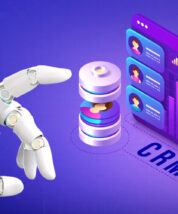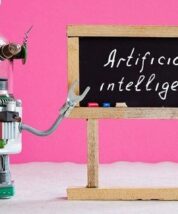Overview
This revolution is far from a passing trend. It’s an urgent necessity to preserve Swiss excellence in a fierce, hyper-competitive global market.
Dive into the industrial revolution fueled by artificial intelligence and the Internet of Things (IoT), and explore how these technologies are transforming manufacturing, inventory management, and logistics into a smarter, more connected approach.
Industry 4.0 and artificial intelligence in the swiss context
In Switzerland, Industry 4.0 is thriving thanks to the magic of connectivity, automation, rich data harvesting, and artificial intelligence orchestrating this industrial symphony.
Factories are evolving into interconnected ecosystems where every machine, sensor, and operator plays a role in a real-time optimized value chain.
How to integrate artificial intelligence into your marketing and digital strategy: impact and tools
AI brings this revolution to life by leveraging data collected through IoT sensors, neural networks, and machine learning algorithms, enabling analysis, prediction, and optimization of industrial processes.
AI rests on a vital trio-intention, intelligence, and adaptability—allowing it to continuously reshape itself to meet the evolving needs of a business.
How is the industry transforming in the digital age ?
Switzerland shines with its elegant and robust industrial landscape: precision machinery, watchmaking artistry, pharmaceuticals, high-quality food, and innovative energy. Staying ahead in these sectors demands reliable equipment and relentless industrial creativity.
Digitalization is now a strategic must—not just to cut costs, but to shorten delivery times and boost profitability.
The boundless potential of swiss-hosted artificial intelligence
Transitioning from traditional to AI-driven systems isn’t without hurdles. Resistance to change, high initial investment, and the need for cybersecurity and data analysis expertise are all expected.
Yet the rewards—especially in terms of productivity and competitiveness—are significant, particularly when opting for internally hosted AI solutions that strengthen sovereignty and ensure compliance.
When AI becomes a key partner in predictive maintenance in switzerland
In Switzerland, predictive maintenance goes far beyond reactive fixes: it anticipates machine failures by decoding subtle signals from connected sensors, allowing AI algorithms to foresee and prevent breakdowns.
Unlike emergency repairs (after a failure) or scheduled servicing (based on fixed intervals), predictive maintenance intervenes at just the right moment.
How AI is revolutionizing industrial maintenance
AI delivers major time savings, operates 24/7, and automates low-value, repetitive tasks. It serves as a universal information engine, processing massive data volumes to deliver reliable predictive insights.
Data exploration and interpretation
IoT sensors instantly monitor heat, vibrations, voltage, and more. AI models feed on both historical and real-time data to detect early signs of possible failures.
Anticipating malfunctions
AI can identify patterns invisible to the human eye and foresee upcoming breakdowns, allowing intervention before issues arise.
Scheduling optimization
Maintenance operations are planned in advance, reducing unexpected downtime and maximizing equipment availability.
Inventory and resource management
AI seamlessly coordinates spare parts supply and technician assignments, ensuring flawless stock and resource management.
What Are the Benefits of AI for Swiss Companies?
AI’s tireless dedication frees up valuable time by automating monotonous, low-value tasks.
Benefits for Swiss businesses
- Operational Optimization: Unscheduled downtimes become rare, improving equipment reliability and boosting overall performance.
- Extended Equipment Lifespan: Machines are maintained based on their actual condition, preventing premature wear and expensive replacements.
- Cost Efficiency: Targeted maintenance reduces expenses on parts and labor, resulting in substantial savings.
- Enhanced Safety: Fewer incidents caused by unexpected failures.
- Real-life Example: Siemens deploys breakthrough technologies to predict machine behavior and handle surprises and emergencies, reducing both downtime and operating costs.
Implementation challenges
- System Integration: Adapting AI to diverse, sometimes outdated infrastructures.
- Team Onboarding: Training staff to embrace new tools and workflows.
- Cybersecurity in Industry: Choosing Swiss-hosted AI ensures data sovereignty, regulatory compliance, and fast, local responsiveness.
How artificial intelligence is revolutionizing supply chain management in switzerland
Supply chain optimization is a top challenge for Swiss manufacturers, who must balance complexity, unpredictable demand, and ever-evolving customer expectations. Industrial AI makes it possible to anticipate, streamline, and secure every link in the logistics chain.
How does AI optimize the supply chain?
Demand forecasting
According to industry stats, a staggering 85% of decision-makers in retail use AI to forecast future demand, reduce costs, and speed up delivery.
Inventory optimization
AI turns stockouts and overstock into distant memories, ensuring perfect availability while minimizing storage costs.
Logistics optimization
Routing, transport planning, and warehouse management are handled in an automated, adaptive manner aligned with real-time conditions.
Traceability and transparency
The synergy of AI and IoT brings clarity to every part of the chain, ensuring full transparency and reinforcing trust and regulatory compliance.
Risk management
AI detects upcoming disruptions—delays, shortages, or weather-related issues—and offers preventive responses.
Real-life Example:
Migros uses AI to anticipate customer desires and keep shelves stocked. Nestlé increased conversion rates by 30% with personalized suggestions based on customer behavior analysis.
What sets swiss consumer goods companies apart?
- Cost Optimization: Less waste, fewer immobilized inventories.
- Efficiency and Speed: Faster, more reliable deliveries leading to higher customer satisfaction.
- Customer Satisfaction: AI enables personalized service and a smooth customer journey.
- Resilience: Swiss companies stand out with their ability to weather disruptions and surprises.
Swiss-specific characteristics
Switzerland’s multilingual, demanding, and competitive market challenges businesses to deliver perfection. Customers expect flawless products, ethical business conduct, and seamless experiences.
AI helps tailor offers, streamline inventory management, and personalize customer interactions—all while respecting local ethical and legal standards.
Challenges and opportunities for AI in switzerland’s industrial sector
There are indeed significant challenges to overcome for AI to thrive in the Swiss industrial landscape.
Challenges
- Talent: Training experts in AI and data science.
- Industrial Cybersecurity: Safeguarding infrastructure and sensitive data.
- Initial Investment: Implementation costs may be high, but the ROI is clear.
- Integration: Aligning existing systems with new AI tech.
- Ethics and Regulation: Respecting privacy and data sovereignty, especially through local hosting. Swiss-hosted AI becomes a strategic advantage, ensuring data control and regulatory alignment.
Development horizons
AI is set to converge with other technologies like digital twins, blockchain, and IoT, reaching new heights in automation and customization.
Switzerland is perfectly positioned to lead the way in Europe’s Industry 4.0 evolution, thanks to its innovative ecosystem.
Subscribe to our newsletter and gain access to strategic insights, exclusive analyses, and expert tips to enhance your online presence.
Conclusion
Switzerland’s transition to Industry 4.0 is no longer optional—it’s a strategic opportunity for companies that want to stay competitive.
AI is revolutionizing predictive maintenance and supply chain optimization, delivering impressive gains in efficiency, cost savings, and equipment reliability. Yes, challenges exist, but the opportunities far outweigh them.
Don’t hesitate—train your teams, invest in industrial innovation, and propel your business to the top by becoming a pioneer of Switzerland’s digital revolution.
Those who harness disruptive technologies will shape the future, building an industry that’s not just smarter and more agile—but more human. With its expertise and creativity, Switzerland is ready to write its own industrial future.







